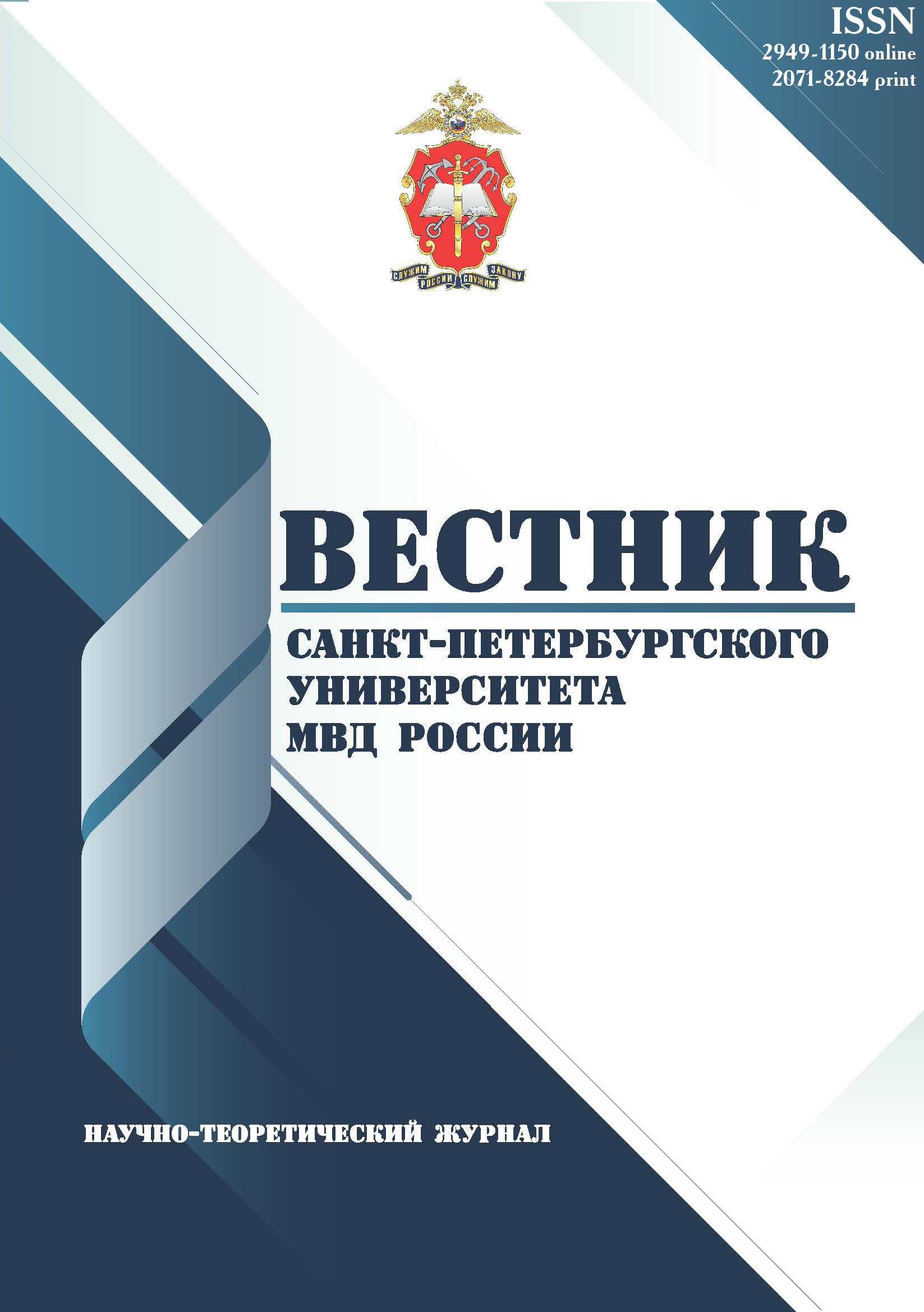from 01.01.2020 until now
CSCSTI 10.07
Russian Classification of Professions by Education 40.03.01
Russian Library and Bibliographic Classification 67
Russian Trade and Bibliographic Classification 7
BISAC LAW LAW
Introduction. Technological imperatives serve as one of the most powerful means of managing modern social relations. They are embedded in our life unconsented; moreover, it happens without the consent of legislators, public authorities, and other people involved in governing the state. Methods. The methodological basis of the study was made up of general scientific dialectical and formallogical methods. This enabled the authors to determine that any technological imperative is nothing but a fait accompli, which can be neither refuted, cancelled nor ignored. However, its emergence often depends on people being far from governing, particularly the state power. Results. Each imperative makes our life easier, but they, on the other hand, create many problems. Imperatives transform various aspects of everyday life, at the same time they make it possible to form numerous criminal patterns making law enforcers to react late.Tardiness is exactly the term to define the activity of the governmental system in relationto any of technologies implemented in a person’s daily life.In turn, the parallelism,alternativity of legal regulation of certain processes taking place in society are easily done by new technologies, independently being embedded in all areas of human activity. Failure of the state to manage this sort of things leads to an inevitable uncertainty in all legal regulation, where ‘imaginary’ advisability has long ago absorbed legality, breaking off the age-old debate about the relationship between these categories.
technological imperative, legal regulation, public relations, legality, advisability, uncertainty, biotechnologies
1. Bavsun M. V., Popov D. V. Metamodern v prave: oscillyaciya v tochke Kanetti. Stat'ya III. Ambivalentnost' prava v kontekste biopoliticheskoy strategii gosudarstva // Nauchnyy vestnik Omskoy akademii MVD Rossii. 2021. № 1. S. 66–74. https://doi.org/10.24411/1999-625X-2021-11012.
2. Chegovadze L. A., Strigunova D. P. Yuridicheskaya priroda al'ternativnogo pravovogo regulirovaniya mezhdunarodnyh kommercheskih dogovorov // Vestnik Moskovskogo universiteta MVD Rossii im. V. Ya. Kikotya. 2018. № 1. S. 149–152.
3. Papandupolo V. F. Dualizm regulirovaniya obschestvennyh otnosheniy (pravovoe i normativnoe regulirovanie) // Teoreticheskaya i prikladnaya yurisprudenciya. 2021. № 3. S. 7–16. https://doi.org/10.22394/2686-7834-2021-3-7-16.
4. Zayceva E. S. Samoregulirovanie kak al'ternativa pravovomu regulirovaniyu // Nauchnyy vestnik Omskoy akademii MVD Rossii. 2019. № 4 (75). S. 60-64. https://doi.org/10.24411/1999-625X-2019-14010.
5. Popova O. V. Telo kak territoriya tehnologiy: ot social'noy inzhenerii k etike biotehnologicheskogo konstruirovaniya : [monografiya]. Moskva : Kanon+, 2021. 352 s.
6. Novotny H., Testa G. Naked genes: reinventing the human in the molecular age. Cambridge, MA : MIT Press, 2010. 144 p.
7. Fukuyama F. Nashe postchelovecheskoe buduschee : Posledstviya biotehnologicheskoy revolyucii / per. s angl. M. B. Levina. Moskva : AST, 2004. 349 s.
8. Popova O. V. Biotehnologicheskoe konstruirovanie iskusstvennogo – estestvennogo: social'nyy kontekst // Znanie. Ponimanie. Umenie. 2015. № 2. S. 161–171. https://doi.org/10.17805/zpu.2015.2.17.
9. Tischenko P. D. Biotehnologicheskie predposylki seksual'noĭ revolyucii XXI veka // Chelovek. 2009. № 6. S. 21–30.
10. Controversies in the Determination of Death : A White Paper of the President’s Council on Bioethics. Washington, DC : [The President’s Council on Bioethics], 2008. 168 p.
11. Kurcmen Dzh., Gordon F. Da sginet smert'! : Pobeda nad stareniem i prodlenie chelovecheskoy zhizni. / per. s angl. M. N. Kovalevoy. Moskva : Mir, 1982. 215 s.
12. Agamben Dzh. Homo sacer. Chto ostaetsya posle Osvencima: arhiv i svidetel' / per. s ital.: I. Levina, O. Dubickaya, P. Sokolov. Moskva : Evropa, 2012. 189 s.
13. Lizza J. P. Potentiality, irreversibility, and death // The Journal of Medicine and Philosophy. 2005. Vol. 30, № 1. P. 45–64. https://doi.org/10.1080/03605310590907057.
14. Popov D. V. Biovlast' i zhizn': filosofsko-antropologicheskie osnovaniya, potencial i perspektivy biopolitiki : monografiya. Omsk : Omskaya akademiya MVD Rossii, 2021. 144 s.
15. Bavsun M. V., Popov D. V. Biopoliticheskiy bekgraund ugolovnoy politiki // Filosofiya prava. 2019. № 4 (91). S. 75–84.
16. Vyshinskiy A. Ya. Teoriya sudebnyh dokazatel'stv v sovetskom prave. 3-e izd., dop. Moskva : Gosudarstvennoe izdatel'stvo yuridicheskoy literatury, 1950. 308 s.
17. Stuchka P. Revolyucionnaya rol' prava i gosudarstva : obschee uchenie o prave. 3-e, peresmotr. i dop. izd. Moskva : Izdatel'stvo Kommunisticheskoy akademii, 1924. 140 s.
18. Strogovich M. S. Teoreticheskie voprosy sovetskoy zakonnosti // Sovetskoe gosudarstvo i pravo. 1958. № 4. S. 15–26.
19. El'kind P. S. Celi i sredstva ih dostizheniya v sovetskom ugolovno-processual'nom prave. Leningrad : Izdatel'stvo Leningradskogo universiteta, 1976. 142 s.
20. Orlov V. N., Ekimov A. I. Cel' v norme sovetskogo prava // Izvestiya vysshih uchebnyh zavedeniy. Pravovedenie. 1968. № 5. S. 22–28.
21. Trubnikov N. N. Otnoshenie celi, sredstva i rezul'tata deyatel'nosti cheloveka // Voprosy filosofii. 1964. № 6. S. 59–68.













